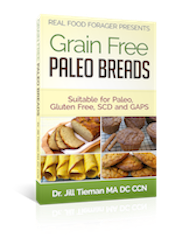
The first hospital to remove dietary supplements from their formulary is the Children’s Hospital of Philadelphia — lead by millionaire vaccine inventor and vaccine advocate Paul Offit. Dr. Offit is Chief of Infectious Diseases at The Children’s Hospital of Philadelphia and the Maurice R. Hilleman Professor of Vaccinology and professor of pediatrics at the University of Pennsylvania School of Medicine. No conflict of interest there.
Dr. Offit has said that all vaccines are perfectly safe and infants can tolerate theoretically 10,000 of them at once. Clearly an advocate of Big Pharma, Offit is now going after dietary supplements with a typical rationale.
The Rationale
The rationale used by Offit engages arguments that have been around for years. With the backing of the Joint Commission of Hospital Accreditation, he claims the hospital was asked to treat dietary supplements like drugs because they could have a pharmacologic and physiologic effect that is drug-like.
This is true. Many times, the dietary supplements are more effective than drugs. But no one in a hospital setting wants to share that.
Additionally, according to Offit,
The Food and Drug Administration doesn’t regulate these products as drugs, so for the 54,000 dietary supplements on the market, there isn’t a very good safety profile. Probably fewer than 0.3% of those products have any reasonable safety portfolio.
There is no safely profile, because there is no safety issue. There have been very few reported incidents of serious adverse reactions to dietary supplements in the past 30 years. In general dietary supplements are enormously safe for most people to use. Compare this to the statistics of adverse events in hospitals under doctor supervision.
According to Dr. Sanjay Gupta,
a reasonable estimate is that medical mistakes now kill around 200,000 Americans every year. That would make them one of the leading causes of death in the United States… Here’s one theory. It is a given that American doctors perform a staggering number of tests and procedures, far more than in other industrialized nations, and far more than we used to. Since 1996, the percentage of doctor visits leading to at least five drugs’ being prescribed has nearly tripled…
The department of Health and Human Services had found that one in seven medicare beneficiaries who is hospitalized will be harmed as a result of the medical care they receive in the hospital.
This study published in the Archives of Internal Medicine in 2010, showed that sepsis and pneumonia caused by hospital-acquired infections killed 48,000 patients and cost $8.1 billion in 2006 alone. The study also found that 20 percent of people who developed sepsis died; 11 percent of those who developed pneumonia died.
But Dr.Offit sees fit to point out the lack of a safety profile for dietary supplements.
He goes on to state that,
Their efficacy claims are often not true. What is worrisome is that the labeling may not be accurate and that, for example, a selenium product, which is said to contain 200 µg of selenium, may in fact contain 40,800 µg as was recently shown with a couple of products.
Hmmm. Let’s go back to that statistic I quoted above..
medical mistakes now kill around 200,000 Americans every year.
>
By the way, much of that is due to mistakes in drug prescribing and drug interactions.
Here is the Way It Works Now at Children’s Hospital
According ot Offit,
When you come to the hospital, we ask parents whether their children are receiving dietary supplements. Many times in the past, we just asked whether they were receiving drugs, and I think that many parents didn’t consider supplements to be drugs. So, for the first time, we are really finding out about the level of dietary supplementation, at least in the pediatric population in our hospital.If they are taking supplements, we strongly discourage their use and give them a pamphlet to explain why it is that these products are not what they claim to be. If they still want to use a dietary supplement and we don’t consider it to be potentially harmful like St. John’s wort, then we give them a waiver and say that they are using this against medical advice.
I think we are going to learn a lot over the next year or so about dietary supplement use in our hospital, and it will be of benefit to our patients because this is a patient safety initiative.
Offit is strongly against any exemption to vaccine administration and has been quoted as saying,
A more practical way to determine the diversity of the immune response would be to estimate the number of vaccines to which a child could respond at one time…. each infant would have the theoretical capacity to respond to about 10, 000 vaccines at any one time.
Conflict of interest notwithstanding, wouldn’t it make more sense to educate the doctors about potential supplement/drug interactions than completely ban supplements from patients?
I do agree that if a patient needs to be on strong medications such as chemotherapy, they do need to be aware of any potential interactions with anything else they are taking.
But here again, children’s and parent’s rights are being ignored and revoked in subtle and devious ways. I find it interesting that the first hospital to invoke this policy is a children’s hospital.
What do you think? Leave a comment and let me know!
Related Articles:
- Parents Rights Violated: Forced Chemotherapy on 9 Year Old Already Cancer Free From Alternative Therapies
- Cancer’s Shocking Price Tag
The owner of this website is a participant in the Amazon Services LLC Associates Program, an affiliate advertising program designed to provide a means for sites to earn advertising fees by advertising and linking to Amazon properties including, but not limited to, amazon.com, endless.com, myhabit.com, smallparts.com, or amazonwireless.com. Disclaimer
Tropical Traditions Gold Label Virgin Coconut Oil

Tropical Traditions Gold Label Coconut Oil is a product I use every day.










{ 2 comments… read them below or add one }
How frightening this is to me. I am an adult that gets treated at Children’s Hospital in Phila. because of an orphan disease that I have. Do they think that they can regulate the supplements I take???? I have gotten severe reactions to some meds that were prescribed to me, but never from a supplement that I take. It looks as though all of our freedom is being taken away from us little by little. Good grief!
Offit represents the very mentality that makes some people avoid conventional medicine and its doctors. How can someone who’s supposedly educated be ignorant of the value of supplements? I’ll “risk” my health with a supplement over an “approved” pharmaceutical anyday of the week. Are there still McDonalds in hospitals…
As for being a drug, supplements act in the body to improve health overall, a drug simply tries to cover up a particular symptom.